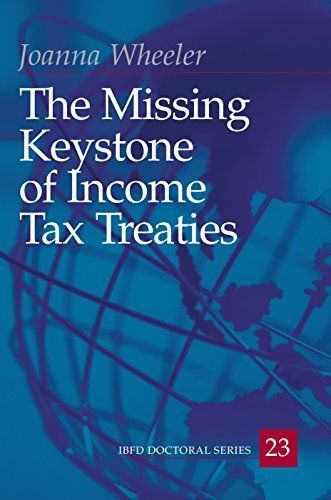
The Missing Keystone of Income Tax Treaties
Le site d'IBFD indique : "This thesis reveals a fundamental flaw in the OECD Model, namely that it pays no attention to the person who is liable to tax in respect of the income for which treaty benefits are claimed. This "missing keystone" causes two major problems of interpretation. One problem arises if the contracting states attribute the income to different persons; the myriad ways in which such a conflict can occur is illustrated by an extensive comparison of the domestic law of the Netherlands and the United Kingdom in this respect. This missing keystone also causes a disconnection between the two principal conditions for treaty entitlement. The treaty residence of the claimant is based on a general liability to tax in a contracting state, whereas the distributive articles focus on the ownership of the income. Interpretation problems arise if domestic law imposes a tax liability on a person who is not the owner of the income, for example under anti-avoidance legislation or a corporate group regime. In order to eliminate this fundamental flaw, the thesis proposes a "new approach" in which the criterion for treaty entitlement is liability to tax on the income, backed up by substantial connections between the income and the treaty claimant and between the treaty claimant and the residence state. The new approach is tested in various situations, many of them decided cases, and proves to give appropriate policy results while respecting the tax sovereignty of states. The thesis includes a proposal for a re-draft of the OECD Model on this basis."